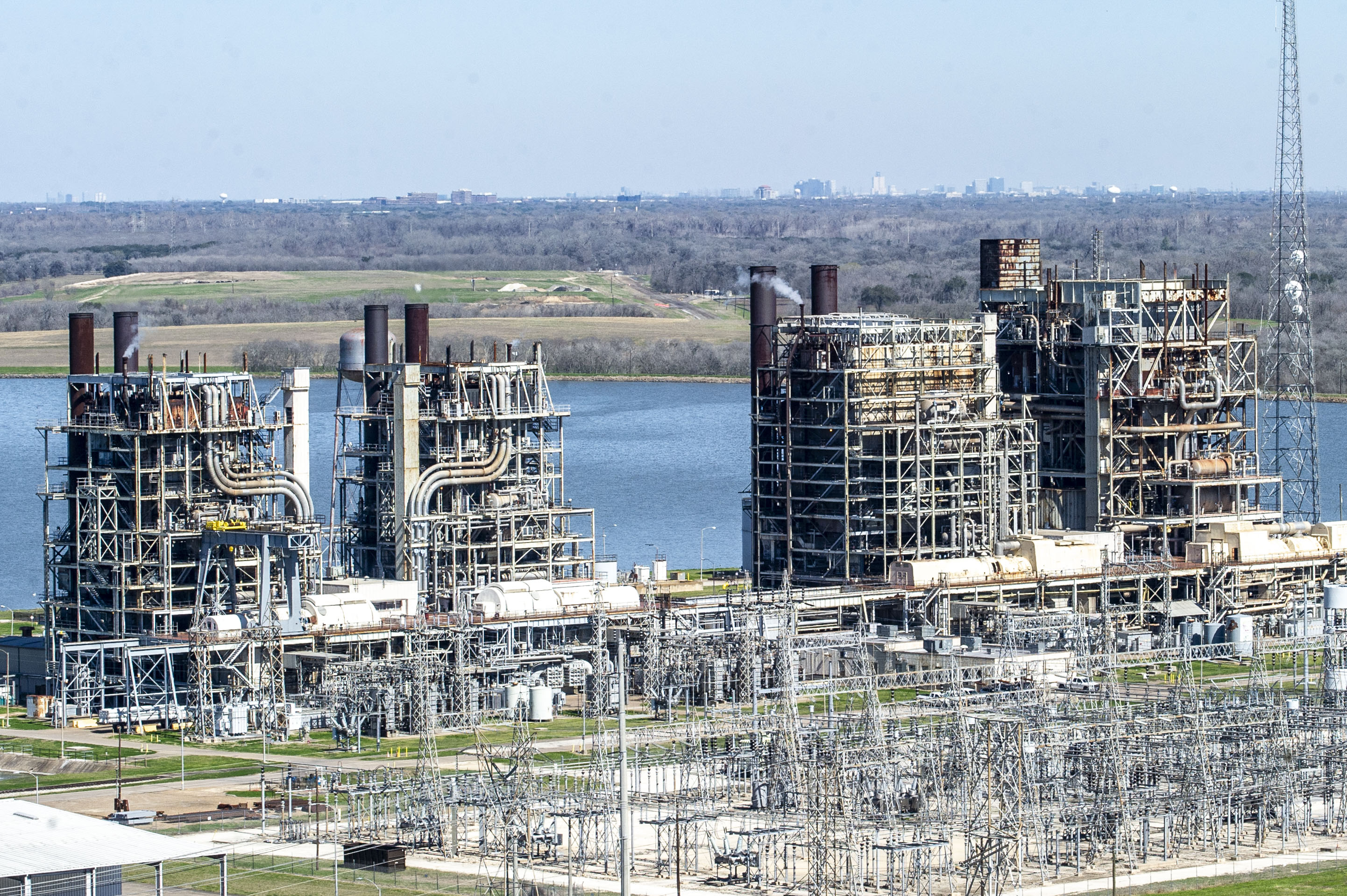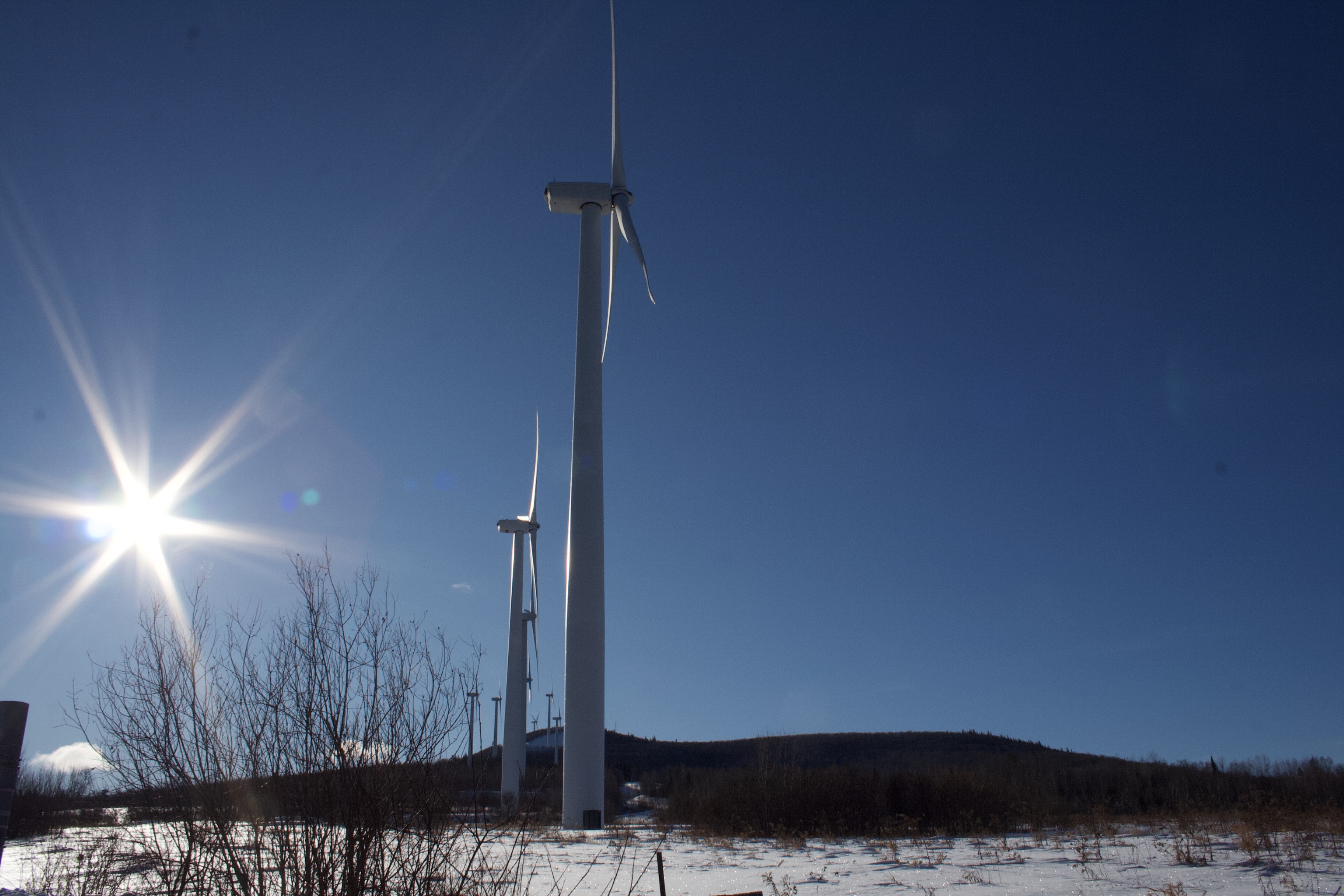Jim Wright stepped out of the room last week while his fellow Railroad Commissioners voted to renew the permit for Eagleford Recycling LLC, an oilfield waste company to which he has financial ties.
It was an unusually public recognition of his ongoing financial stakes in companies that are regulated by the Railroad Commission.
The agency, which regulates oil and gas extraction and disposal, is led by three elected commissioners. Wright, a Republican elected in 2020, touts his experience in the oilfield waste industry as an asset to his work as a commissioner. He continues to serve as president of one oilfield waste company and holds stock in several others, according to financial disclosure statements. Advocates have called for stricter conflict of interest protocols at the Railroad Commission and urged commissioners to recuse themselves from matters in which they have a financial interest.
“We’re glad to see that Chairman Wright followed state law today and recused himself from a decision which he has a private interest in,” said Virginia Palacios, executive director of the nonprofit Commission Shift. “Although this represents the bare minimum of what we should expect from public officials, it is a step forward for the Railroad Commission.”
Commission Shift called the recusal “historic.” The organization documented Wright’s extensive holdings in the oil and gas industry in a 2021 report titled “Captive Agency.” Commissioners also frequently accept campaign contributions from companies with business before the agency. Wright’s recusal, a Commission Shift spokesperson said, was the first by a member of the Railroad Commission for having a financial tie to a regulated company at least since 2020.
Wright previously recused himself from a vote in 2021 because his general counsel had worked on the matter in private practice.
The move comes as Wright mounts a campaign for a second six-year term on the commission. Well control expert Hawk Dunlap and far-right activist Bo French are contending for the Republican nomination. Mechanical engineer and state Rep. Jon Rosenthal of Houston is running for the Democratic nomination.
“Chairman Wright is focused on running his race. He will continue to work on behalf of all Texans to ensure energy production remains a cornerstone of our state’s economy,” said Aaron Krejci, his spokesperson. “That will not change no matter who else is on the ballot.”
“I’m Going to Step Out”
During the agency’s monthly open meeting in Austin on Nov. 18, the second agenda item was Eagleford Recycling LLC’s application for a permit renewal and amendment. Before the commissioners voted on the permit, Wright stood up.
“I’m going to step out because I have a financial interest in this,” he said. “So in case you all have a discussion, you can.”
Commissioners Christi Craddick and Wayne Christian both voted to approve the permit. It passed 2-0 in Wright’s absence.
This story is funded by readers like you.
Our nonprofit newsroom provides award-winning climate coverage free of charge and advertising. We rely on donations from readers like you to keep going. Please donate now to support our work.
Donate Now
Krejci, Wright’s spokesperson, said he owns “a small financial interest (approximately 5%)” in the company and is not involved in day-to-day operations. Krejci said that Wright would recuse himself from future votes in which he has financial interests.
“That has always been his position,” Krejci said.
Wright also has stock in Environmental Evolutions National, EEES Energy Solutions, Environmental Evolutions Holdings, Environmental Evolutions Transportation, Environmental Tank Solutions and Greenergy Companies, according to his 2024 disclosure statements. Neighboring Oklahoma does not allow their oil and gas regulators to own interests in the industry they regulate.
Wright founded DeWitt Recyclable Products, LLC in 2011, as the shale boom was taking off in South Texas. The company’s facility in DeWitt County disposed of and reclaimed oil and gas waste. The Railroad Commission oversees oilfield waste landfills and recycling facilities, which often raise health and safety concerns among nearby residents.
After Wright sold the company in 2014, it was renamed Eagleford Recycling LLC. Contamination at the site later led the Railroad Commission to cancel its permit in 2017. Wright maintained the pollution occurred after he sold the company.
Eagleford Recycling LLC obtained a new permit in 2020 that ran through 2025. The company applied for a permit renewal and amendment earlier this year. The existing permit already allows the company to produce roadbase, a paving material, from oilfield drilling waste. The permit amendment would allow the company to market this as a “reusable product.”
The company’s prior permit allowed the roadbase to be used on “lease roads, well pads or on private roads and county roads with authorization from the respective property owners and county commissioners.” Commission Shift has raised concerns about the use of drill cuttings for roadbase because of the volatile organic compounds in the waste.
Two residents who live near the facility outside Cuero challenged the permit. They argued that groundwater contamination could occur at the site and objected to Wright’s personal financial interest in Eagleford. Following a hearing, the Railroad Commission staff recommended approving the application.
When the Railroad Commission published its final order approving the permit, Commissioners Craddick and Christian signed their names. By Commissioner Wright’s name, the word “recused” was printed.
About This Story
Perhaps you noticed: This story, like all the news we publish, is free to read. That’s because Inside Climate News is a 501c3 nonprofit organization. We do not charge a subscription fee, lock our news behind a paywall, or clutter our website with ads. We make our news on climate and the environment freely available to you and anyone who wants it.
That’s not all. We also share our news for free with scores of other media organizations around the country. Many of them can’t afford to do environmental journalism of their own. We’ve built bureaus from coast to coast to report local stories, collaborate with local newsrooms and co-publish articles so that this vital work is shared as widely as possible.
Two of us launched ICN in 2007. Six years later we earned a Pulitzer Prize for National Reporting, and now we run the oldest and largest dedicated climate newsroom in the nation. We tell the story in all its complexity. We hold polluters accountable. We expose environmental injustice. We debunk misinformation. We scrutinize solutions and inspire action.
Donations from readers like you fund every aspect of what we do. If you don’t already, will you support our ongoing work, our reporting on the biggest crisis facing our planet, and help us reach even more readers in more places?
Please take a moment to make a tax-deductible donation. Every one of them makes a difference.
Thank you,

















